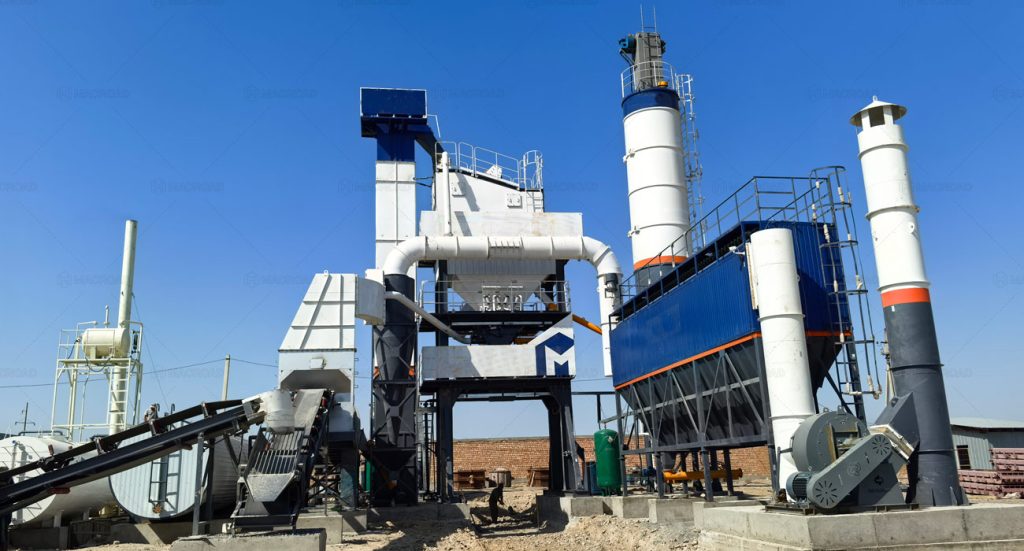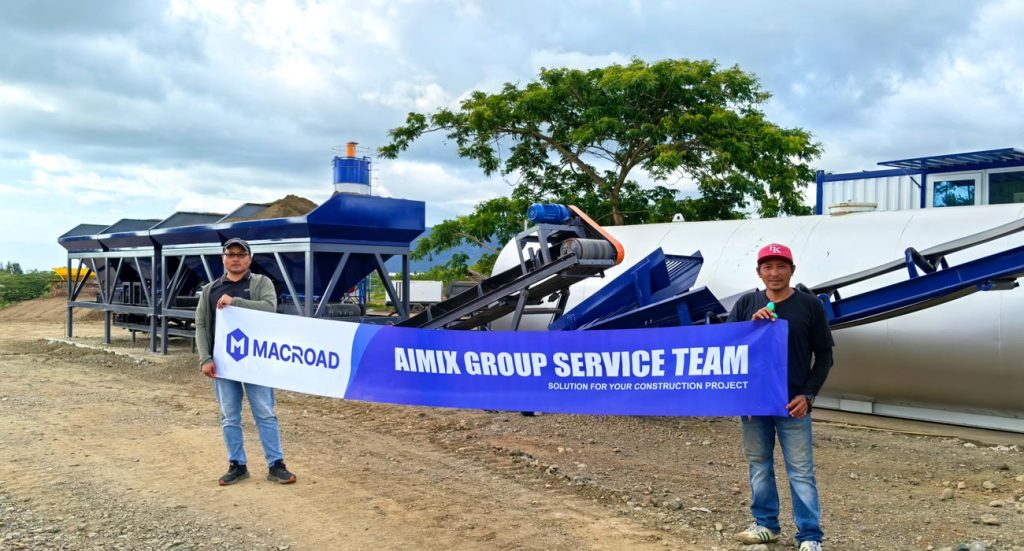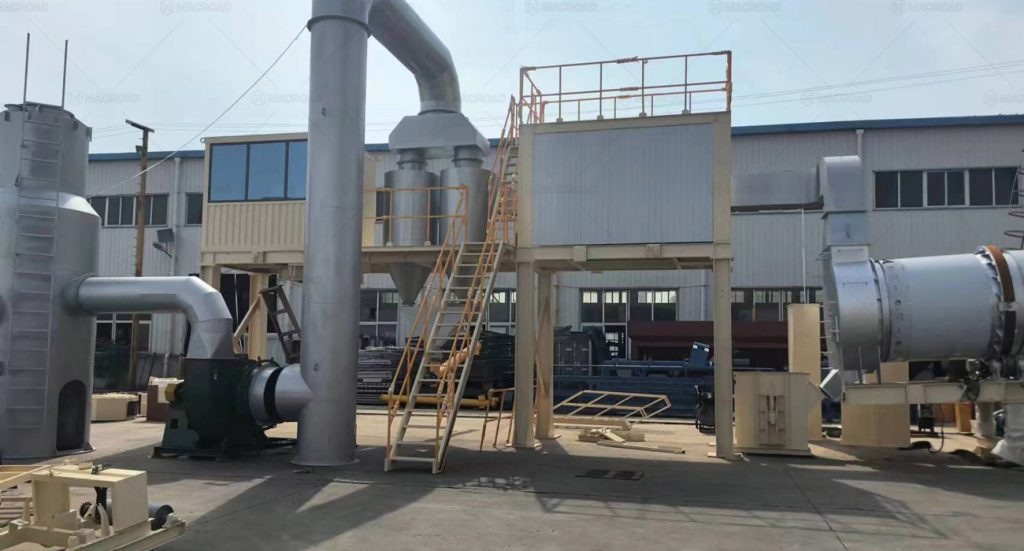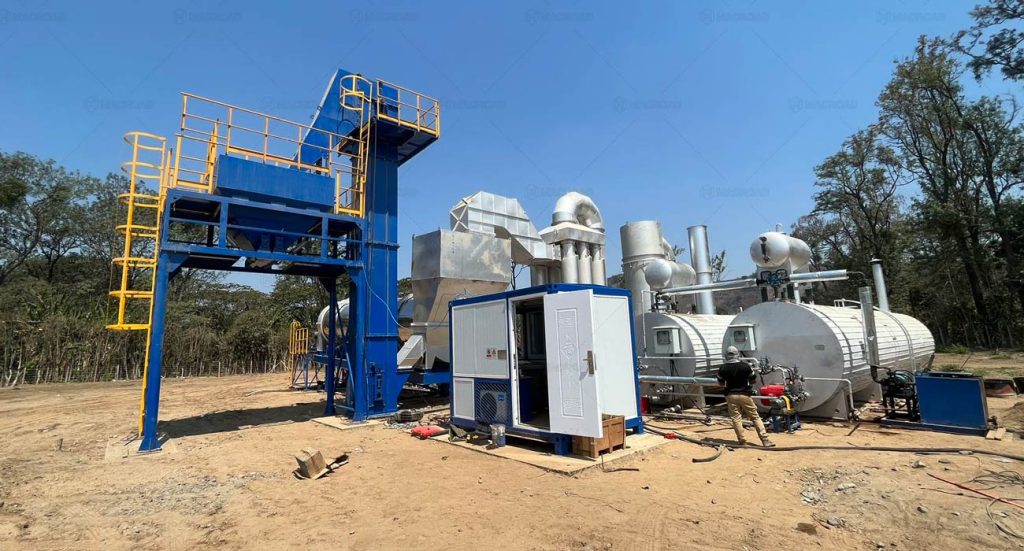Hot mix plants for road construction play a crucial role in producing asphalt mixtures tailored to various road grades, such as highways and rural roads. Each road type comes with different performance requirements, necessitating adjustments in production process parameters like aggregate heating temperatures and asphalt blending ratios. To ensure that these plants can adapt quickly to the diverse needs of road projects, optimizing the process adaptation mechanisms is essential. This article explores effective strategies to achieve this optimization, helping avoid construction delays caused by lagging process adjustments.

Understanding Performance Requirements for Different Road Grades
To effectively produce asphalt mixtures that meet performance requirements, it is vital to understand the distinctions between road grades. Highways typically demand higher strength and durability due to heavier traffic loads and environmental stresses, while rural roads may focus on cost-effectiveness and basic performance.
By recognizing these differences, asphalt mixing plant suppliers can better configure their production processes to align with the specific needs of each project. This entails adjusting parameters such as aggregate heating temperatures and asphalt blending ratios to ensure the mixtures produced are suitable for their intended applications.

Implementing Flexible Process Parameter Schemes
One effective method to optimize hot mix plants is by implementing flexible process parameter schemes. This involves presetting multiple sets of production parameters that correspond to various road grades. For example, the heating temperature for aggregates can vary significantly based on whether the mixture is intended for a highway or a rural road.
Having predefined configurations allows operators to quickly switch between settings without causing significant downtime. This flexibility minimizes disruptions in production and ensures that asphalt mixtures meet the required performance standards in a timely manner, ultimately avoiding delays in the construction process.

Configuring Modifier Addition Modules for Quick Adjustments
In addition to flexible parameter schemes, configuring modifier addition modules that can be quickly switched is essential for optimizing asphalt production. Modifiers, such as polymers or anti-stripping agents, can enhance the properties of asphalt mixtures, making them more suitable for specific applications.
By integrating a modifier addition module into the asphalt drum mix plant, operators can rapidly adjust the mixture composition based on project requirements. This capability allows for efficient incorporation of different modifiers without lengthy setup changes, further streamlining the production process. As a result, hot mix plants can respond promptly to the varying demands of road construction projects, thereby reducing the risk of delays.

Establishing Real-Time Monitoring Systems
Implementing real-time monitoring systems is another critical strategy for optimizing hot mix plants. These systems provide operators with valuable data on production parameters such as temperature and mixing ratios, enabling immediate adjustments as needed.
By leveraging advanced technology, hot mix plants can swiftly respond to changes in project specifications or unexpected challenges. This proactive approach ensures that asphalt mixtures consistently meet quality standards while maintaining construction schedules. For example, companies like Macroad emphasize the importance of integrating such technologies to improve operational efficiency in the asphalt production process.
Conclusion: Ensuring Efficiency in Road Construction Projects
In conclusion, optimizing the process adaptation mechanisms of hot mix plants for road construction is vital for meeting the diverse performance requirements of various road grades. By understanding these requirements, implementing flexible parameter schemes, configuring quick-switch modifier addition modules, and establishing real-time monitoring systems, hot mix plants can enhance production efficiency.
These strategies help avoid construction delays caused by lagging process adjustments, ensuring that asphalt mixtures are produced to the highest standards. By focusing on these optimization efforts, asphalt mixing plant suppliers can contribute to safer and more durable roadways, ultimately supporting the growth and development outlined in the white paper on global road and bridge construction industry.
